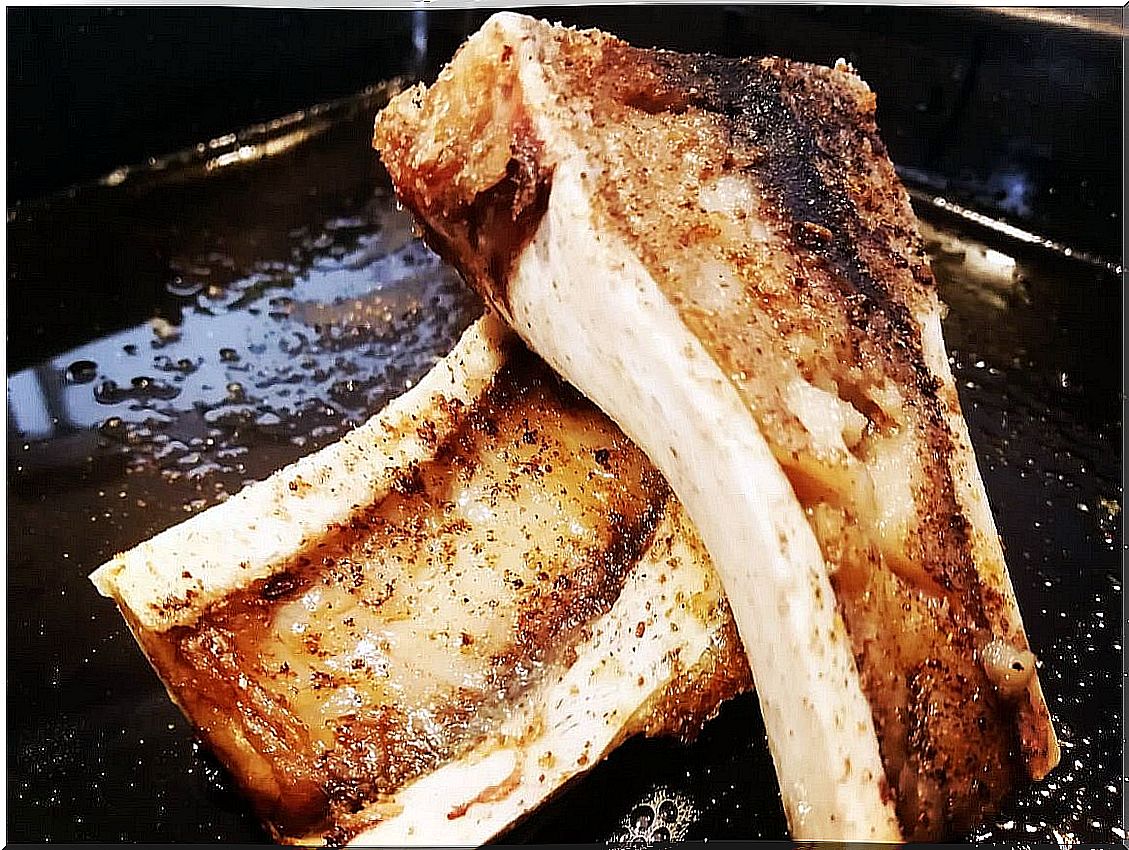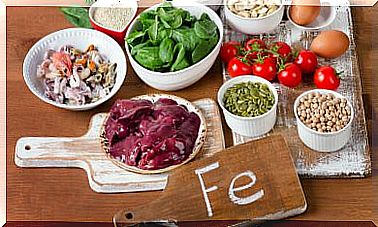How Nutritious Is Marrow And How Can It Be Eaten?
Marrow is a substance found inside the bones of animals. Sometimes it is edible, since it has a high nutritional value that can contribute to meeting daily requirements. It is a food with an intense flavor, which is why it is used in haute cuisine for the preparation of broths and funds.
Despite the fact that in traditional households there is a certain inclination to consume it, along with other offal items, in urban centers it is less common. However, it can be found in supermarkets. Learning how to use it properly can be useful in order to supplement the dietary allowance.
Nutritional value of marrow
The nutritional value of marrow will vary depending on the animal from which it comes. However, it is a fairly energetic food due to its fat content. On average, it usually has about 780 kilocalories per 100 grams, with 84 grams of fat.
It also stands out for its contribution of proteins of high biological value, since it contains 7 grams of them. However, it is devoid of carbohydrates.
On the other hand, the marrow stands out for concentrating micronutrients. Among them iron, phosphorus, calcium, magnesium and zinc. From the point of view of vitamins, it has those of group B and vitamin A. There is even a significant presence of vitamin D.
It is worth highlighting the lipid profile of marrow, since it provides essential fatty acids such as DHA and EPA, necessary for the proper functioning of the body. These guarantee brain development, especially in the early stages of life. They also help modulate levels of inflammation.

Benefits of marrow consumption
We are going to mention the main benefits of marrow consumption and the position of science in this regard.
1. Better bone health
Calcium intake has proven to be essential to prevent bone problems in the medium term. It constitutes a basic pillar to reduce the incidence of osteoporosis, a more frequent pathology in women than in men, capable of negatively conditioning quality of life.
In addition, the marrow also has vitamin D in its interior, which enhances the absorption of calcium itself. This pair is highly recommended in order to improve bone density.
2. Less inflammation
The essential fatty acids contained in marrow are capable of modulating inflammatory levels in the body, according to research published in the journal Microbiology Spectrum . These help prevent cardiovascular diseases, since many of them have inflammation as an underlying mechanism.
It has even been speculated that unsaturated fatty acids are capable of positively modifying the lipid profile. However, this effect is quite limited.
3. Muscle growth
High biological value proteins are essential to ensure lean tissue recovery and growth. There is evidence that an adequate supply of them is able to stimulate muscle hypertrophy, thus causing beneficial effects on health.
In addition, the recommendations about moderating protein intake have been left behind, since it has been shown that these do not generate long-term adverse effects. Not even if they are consumed in large quantities.
Marrow contraindications
Despite its high nutritional density, the consumption of marrow has certain contraindications. It is a product with many calories, so exceeding its intake may condition an imbalance of the caloric balance in favor of the intake. This causes an increase in fat weight, which is considered harmful.
At the same time, there is speculation that an excessively high-fat diet may alter the profile of the gut microbiota. The consequences of this phenomenon are not yet known for sure, but caution is advised in this regard.

Marrow is a nutritious food
Marrow is an unusual food in many countries, but it has a high supply of nutrients. Its consumption can help prevent nutritional deficits, such as vitamin D, which represents a public health problem. At the same time, it is able to help meet the requirements of fats and proteins of high biological value.
Keep in mind that the basis of the diet is variety. For this reason, the greater the spectrum of foods that are included in the diet, the better. You can consume marrow, for example, in broths. This will take advantage of a large amount of its nutrients, although part of the fat-soluble ones will be wasted.









